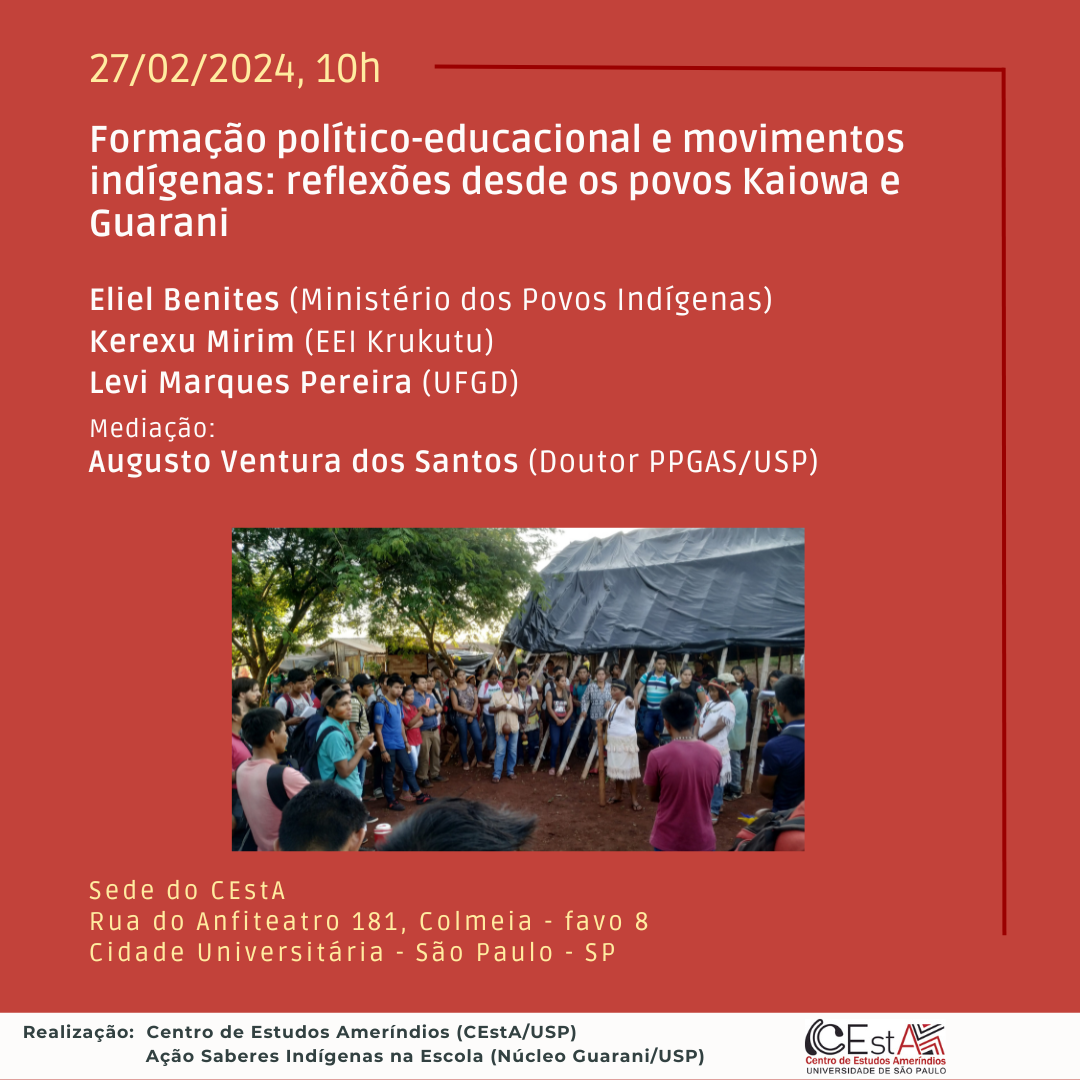Political-educational formation and indigenous movements: reflections from the Kaiowa and Guarani peoples
With
Eliel Benites (Ministry of Indigenous Peoples)
Kerexu Mirim (EEI Krukutu)
Levi Marques Pereira (UFGD)
Mediation
Augusto Ventura dos Santos (Doctor PPGAS/USP)
02/27/2024, at 10am
CEstA Headquarters - Rua do Anfiteatro 181, Colmeia - favo 8
It has been almost half a century since the first experiences of bilingual and differentiated school education began to be developed in indigenous communities in Brazil. These were experiments conducted by incipient organizations supporting indigenous peoples that were opposed to the assimilationist and tutelary model developed by the old official indigenous bodies.
Gradually, such experiences were legally standardized and their administrative responsibility was assumed by state education bodies (Municipal Secretariats, State Secretariats, Ministry of Education, etc.). This process resulted in a significant multiplication and consolidation of experiences of indigenous school education throughout the country. It also resulted in strengthening educational projects of indigenous movements, through the training of new and active leaders, such as indigenous students, teachers and researchers. On the other hand, dialogues with official bodies still present a series of tensions and challenges for communities today: how to deal with the permanent demands for standardization and centralization of state systems? To what extent have political and pedagogical autonomy and indigenous knowledge actually been respected?
Production: Center for Amerindian Studies (CEstA/USP) and Indigenous Knowledge Action at School (Núcleo Guarani/USP)


